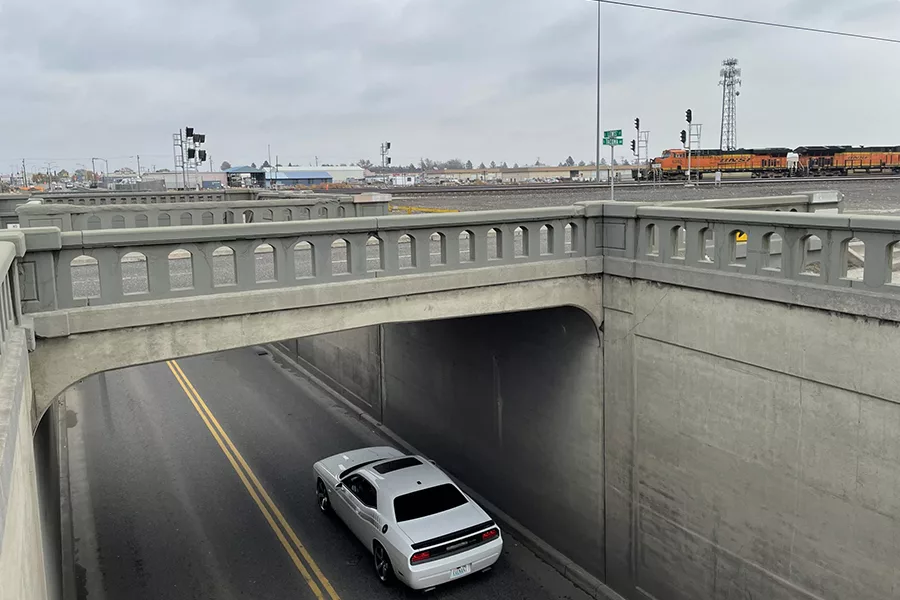
Home » Train blasts too loud?
Pasco fields complaints about noise
Pasco fields complaints about noise
Train blasts too loud? <br>Pasco fields complaints about noise

The old Lewis Street underpass in Pasco had narrow lanes, low clearance and poor visibility, creating a bottleneck for traffic and a hazard for pedestrians.
File photoNovember 12, 2021
Prompted by complaints about the blasts from trains rumbling through Pasco, the city is looking at what it would take to create a “railroad quiet zone.”
The city council reviewed the state and federal requirements for quiet zones during a July workshop but has taken no further steps since then.
Steve Worley, public works director, acknowledged it would be a tall and costly order for the city to install the crossing arms and other equipment needed to justify a quiet zone.
A 2005 federal rule requires train operators to blast their horns in urban areas and at spots where streets cross tracks at grade, meaning they don’t go over – or under – the tracks.
The horn blasts can be reduced if certain safety measures are in place, including crossing arms, signals and other mechanisms to keep people and vehicles out of the path of oncoming trains.
“There are quite a bit of requirements related to eliminating train horns,” Worley said.
The city hasn’t evaluated how many crossings it has or if there is enough distance between them to meet the legal requirements for a quiet zone. The July session offered an overview of what is required but no estimate of the cost.
According to a recent presentation by a safety specialist from Federal Railroad Commission, costs can vary from $30,000 per crossing to more than
$1 million, depending on the number of crossings and the improvements required.
Trains are an everyday fact of life in Pasco. Major rail lines traverse the community, ferrying people (Amtrak) and freight (BNSF and UP).
The BNSF Rail Yard in Pasco is another complication. Trains must blow their horns as the enter and leave.
“Unfortunately, in Pasco, there are several tracks coming in and out of the yard that don’t provide the necessary space,” he said. “This is going to be fairly difficult to meet.”
To pursue a quiet zone, the city would have to identify all railroad crossings and identify what steps are needed. For instance, all public crossings must have lights, gates and indicators when power goes out. Private crossings must be well signed.
Railroad quiet zones are discussed frequently. The most recent federal inventory, from 2019, indicates there are a handful of quiet zones in Washington state: Connell, Mukilteo, Seattle, Spokane Valley, Stevenson, Washougal, Wenatchee and White Salmon.
Real Estate & Construction Local News
KEYWORDS november 2021





